Rich and rare: Frank Lowy looks back on his remarkable life
Even for Australia’s richest, not everything is attainable and for Frank Lowy, one commodity has eluded him.
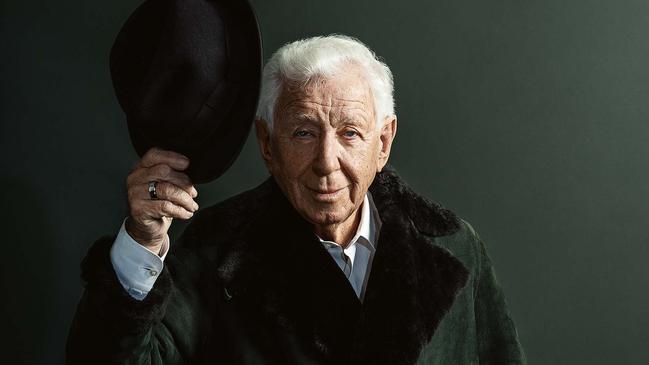
In a life synonymous with plenty, Frank Lowy has assembled an enviable list of acquisitions: shopping centres and palatial homes, planes and boats and myriad forms of personalised transport more commonly associated with mass transit. He’s been a board member of the Reserve Bank, president of the Art Gallery of NSW and has been knighted for his contribution to the UK economy.
But even for a nation’s wealthiest not everything is attainable and for Lowy, one of the most precious and meaningful commodities has also been one of the most elusive. In his long life, time has been a luxury and a curse. The more he has lived, and the more successful he has become, the further he has been taken away from a period that was seared into his psyche and defined his adulthood.
For someone so proud of his ability to look ahead — building shopping malls when 1960s Australia hardly understood the concept, and championing soccer when so few seemed so passionate — his past as a child of the Holocaust has always hovered. Now, at 89, time has taken on a different dimension. After years of toil, Lowy has finally allowed himself to live at a slower pace. Through an unlikely chain of events that led to a new film about his life, he has mostly navigated his troubled past. But just when he might have embraced his change in circumstances, he faces a future that is tinged with joy — and some sadness.
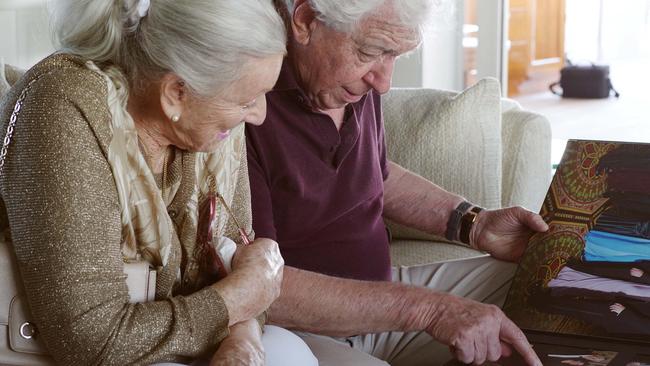
There is a rollicking quality to Lowy’s life, the long and winding road that has brought him to this interview in his Sydney office, towering over the city on which he has left an indelible mark. The Slovakian boy whose formal schooling ended at 13, who fled to Hungary, was interned in a British detention camp in Cyprus, fought in Israel’s war of independence, opened a delicatessen in western Sydney and by 2010 was Australia’s richest man. His life is lengthy and unlikely, and as his old friend Rupert Murdoch once described it, is “a scriptwriter’s dream”. But for a long time its retelling was largely confined to the page. Two hefty volumes of his biography, by journalist Jill Margo, detail his journey from a small town in Slovakia, where his father Hugo was a travelling salesman, to his impoverished arrival in Australia in 1952, through his co-founding of the Westfield shopping centre empire and his success at resurrecting soccer in Australia. Margo’s accounts have been well read and widely acclaimed. Yet it was at the far end of Lowy’s long career that Hollywood called.
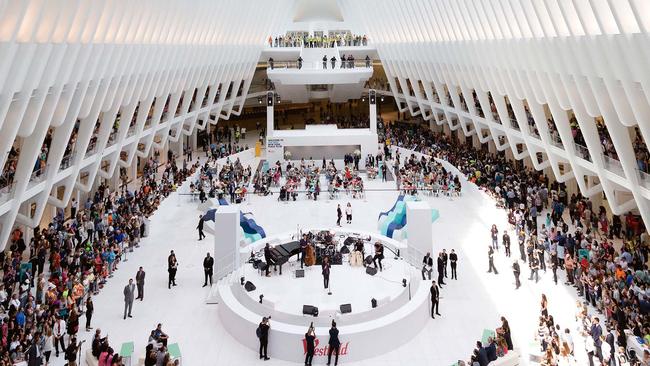
In August 2016, he was on stage at the opening of the shopping centre at New York’s World Trade Centre. Westfield had acquired the mall in the original twin towers in 2001 — just six weeks before 9/11. Fifteen years later, to mark the momentous reopening, Lowy addressed the gala gathering. “The speech turned out to be not just a regular shopping centre opening where you talk about the building and all that, but I mentioned the human resilience of being here on the site of the major tragedy.” Crucially, he linked that catastrophic event, however briefly, to his own story of survival and resilience.
When Lowy was 13, two years after virulent anti-Semitism had prompted his family to flee to Budapest, his father went to a train station one day and never returned. It would be decades before his youngest son learnt that he had been taken to the Auschwitz concentration camp, where, refusing to give up a bag containing his prayer shawl, he had been beaten to death on arrival. “The disappearance of my father has made such a major impact on me, and particularly the discovery of his fate,” he says now, at first evenly, his voiced slightly weaker with age, but then with increasing emotion as he reflects on the man whose photo he has carried through his adulthood and whose memory he has attempted to honour repeatedly ever since. “I remember when he was taken away, we had no idea where he was, and I was watching at the window, day in and day out for him to come back. Distinctly I remember practically every minute of those days.”
Lowy spent the remainder of World War II with his mother in Budapest, scrounging for food and listening each night, terrified, as the occupants of other supposed safe houses like theirs were dragged outside and shot. Only the arrival of the Soviet forces that liberated the city in early 1945 spared the pair a similar fate.
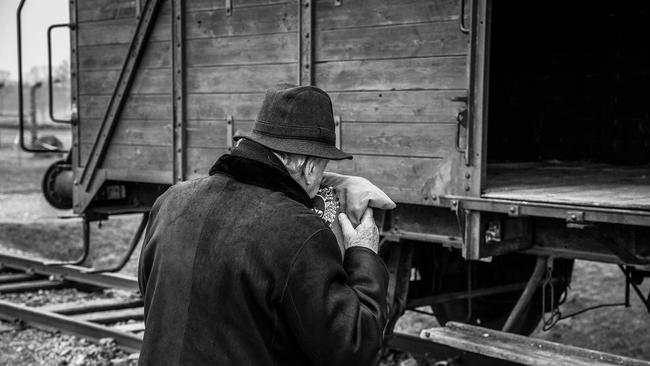
At the end of the war, Lowy, his three siblings and their mother Ilona were alive, but the legacy of those years lingered. “My mother had five brothers and sisters in Slovakia with their little children, my cousins, and they all disappeared. So my mother had a traumatic life. And she died young, she was only 61, and I am convinced that she died of a broken heart.”
All these decades on, and despite his insistence on looking forward, the trauma of his family history is embedded in Lowy’s core — and indeed has spurred many of his successes. He alluded to this in his 2016 speech. An executive from Robert De Niro’s Tribeca Enterprises was in the audience, and a few weeks later the company called to ask if Lowy would be interested in participating in a documentary about his life. Eventually he agreed. “I thought that it may be instructive to see what I went through, what my family went through. It will give a picture and may be something to learn from.” For a man who, to an outsider, might seem to have everything, there was one more telling factor. “I was also a bit flattered that somebody is interested to make a movie about my life.”
Lowy gave director Steven Cantor a free hand, even if it meant exploring some of the most intensely personal moments of his life. Although Lowy is a big name in Australia, Cantor knew little about his subject beyond his involvement in Westfield. He was continually awestruck as he learnt of the twists and trauma that had consumed Lowy’s teenage years, from the murder of his father to serving in an elite Israeli commando unit. As Cantor says of his own American upbringing in comparison: “From 13 to 17, I didn’t do anything.”
Over multiple weeks in 2017 and 2018, Lowy was taken back to many of the places that had shaped him: his modest childhood home in tiny Filakovo, a place from which he retains “just sadness and memories”; the old soccer pitch where he developed his love of the sport; the enduring sadness of Budapest and the “quiet anxiety” of being 13 and waiting in vain for his father; feted by his old army mates at a lively welcoming party in Israel; and the “painful” negotiations to consider selling Westfield late in his ninth decade.
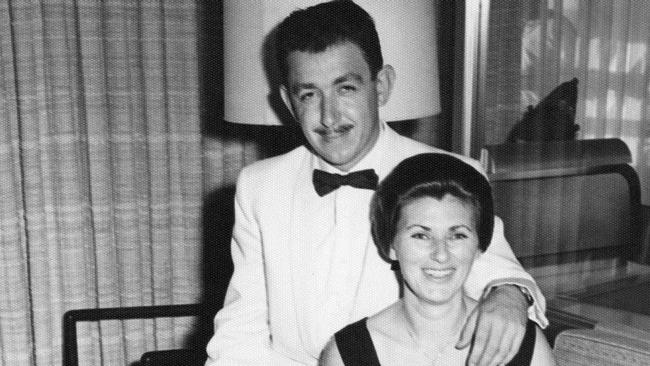
When filming moved to his home life, the documentary became intensely intimate. For 65 years, Lowy has shared his joys and sorrows with his wife Shirley. They met less than a year after he arrived in Australia. She was 19, he was 21. They married 18 months later, in 1954, producing three sons and an extended family that now spans four generations and multiple cities. But before they could even contemplate his retirement and the added time they could spend together, their fortunes altered. Shirley was diagnosed with Alzheimer’s. And suddenly Lowy, the adept negotiator who had parlayed a limited schooling on one side of the world into one of the richest careers on the other side, was confronted with a predicament he could not solve. As youngest son Steven says of his mother’s illness and his father’s challenge in dealing with it: “With all of the achievements and success and power and intellect and resources that he has, there is nothing he can do about it.”
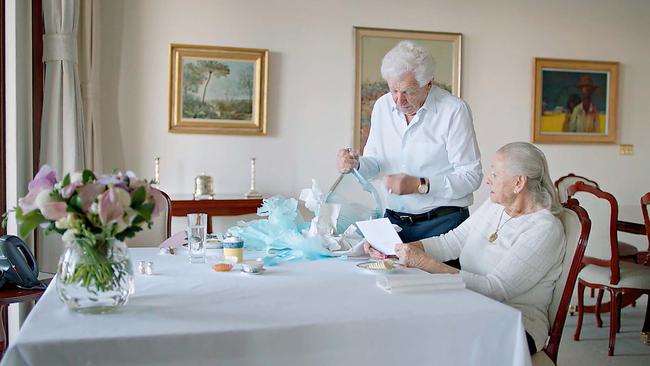
Lowy is familiar with triumph and with failure.His ascension to the top of Australia’s corporate world was almost eclipsed in notoriety in 2010 when Australia’s $46 million taxpayer- funded bid to host the 2022 FIFA World Cup — in which he played a key part — humiliatingly received only one vote. But of all that he has confronted, accepting that there is no cure for his wife, at least not within her lifetime, has been deeply painful. “It was maybe six to 12 months when she was sick and was not sick and you were hoping, running to doctors, making inquiries whether there is a cure or no cure,” he says now of his efforts, which included showering pharmaceutical companies with inquiries about possible drug trials.
“No amount of prayers will help me or her — just maybe make it a bit easier,” he says in one of the film’s many poignant vignettes, as he places a piece of paper in a crevice of Jerusalem’s Western Wall, one of Judaism’s holiest sites. “I am writing a note. To God. To look after my wife,” he says and turns away, blinking hard.
In another scene, he and Shirley are being served dinner at their mansion on Sydney Harbour, discussing their day, when his still carefully groomed wife suddenly starts talking about monkeys at the waterfront. Her husband’s silent response as he continues to salt his meal, a mix of tenderness and despair, will be familiar to anyone who has watched a loved one fade to dementia.
“This is what my life is now,” he says simply when asked about the decision to include such personal moments in the film. “The director had a story to tell and Shirley is part of the story… I never thought it should be excluded.”
Watching on, director Steven Cantor was moved by the solitariness that at times seemed to shroud his subject. “He does have a big family, three kids, and they are around a lot. But at the same time they are not around; he definitely has a lot of night after night with just Shirley and eight o’clock comes around and he has nothing to do,” says Cantor. “He has also got more of a desire to be around people; he probably has a hard time just sitting back and watching TV by himself.”
This was not the ending Lowy had imagined but in the end, pragmatism triumphed. “Eventually you have to look reality in the face,” he says. “It took me a while. And since I do accept the reality, life is a bit easier. And I live with it, I live with Shirley. She is with me all the time, unless when I travel. I have accepted that this is her fate. And my task, my role, is to see that she gets the best possible care in the world.”
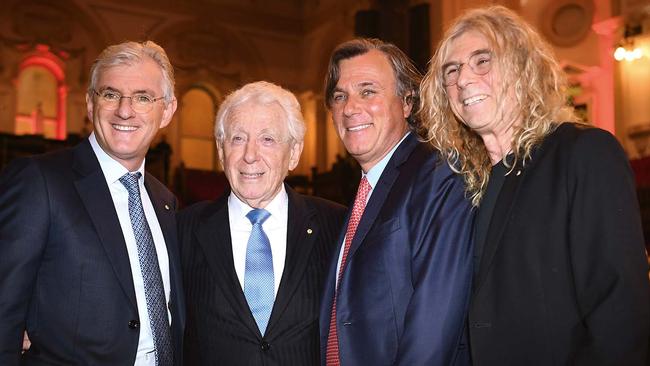
Doing so has entailed change. In May last year, after more than 500 Westfield board meetings since 1960, Lowy fronted his last AGM. The company he had co-founded 58 years earlier had been acquired by the French property giant Unibail-Rodamco in a $32 billion friendly takeover. Shareholders approved Australia’s biggest corporate takeover. After two standing ovations inside Sydney’s cavernous Town Hall, Lowy walked away. “Towards the end of my business career I thought, ‘How can I give this up? This is my life, never mind it’s my business’. I enjoyed the creation very much of Westfield — it practically mirrors my life — and I was really afraid,” he says. “And as it happens I was lucky, very lucky that I was able to retire and have Westfield sold at the same time. Because it’s not mine; somebody else owns it, somebody else runs it, and the responsibility is no longer mine. I am proud of it, but I don’t pine for it, I don’t think about it. I think about my current life,” says Lowy, who recently sold his family’s last remaining shares in the group, severing all ties with Australian retail.
Over the past year, he has spent less time in Australia, shifting between Israel, where he has an apartment block overlooking the Mediterranean, his yacht in Europe, and in Sydney, Los Angeles and New York, where his three sons and their families now variously live. “Westfield was sold, and I don’t have as much left here in a way. As fate has it, many of my friends are either my age or older and many of them are not here anymore. And all my activities that I had been involved with — business, sport and football — are no longer part of my life,” he says. But in Israel he has a wide circle of younger friends. “My life has shifted in a way that is more convenient and more fulfilling to be starting again in a way,” he says.
His days have become a lot less active, with more time for reading and socialising. “And I enjoy that. I didn’t have a moment of free time in the last 50 or 60 years. I enjoyed it, too; it was no burden for me to work.” But at 89, possibly decades later than many of his contemporaries, he has found he has different requirements. “No hassles. I don’t need to be there 10 o’clock in the morning and the next [meeting] 11 o’clock, and so on, for 24/7.” Although he is still busy with multiple bodies — including the Lowy Institute, which he chairs, and the privately run Lowy Family Group — he has surprised himself at how much he is enjoying a slower paced existence, and one that involves less work. “Actually I never knew that I had the capacity to put the past activity out of my mind.”
Having spent the formative part of his teens livingon the margins, Lowy has forged a once unimaginable latter life: he enjoys a tight bond with all his sons, whom he kisses readily, he has new friends and is exploring new cities, with the time to enjoy reading and spending time on his boat, without being absorbed in work constantly. Filming his past was taxing. “The whole drama in a way lives with me still,” he says. “Not that I grieve all the time. I do remember what has happened. But I look forward.” But it also proved to be unexpectedly cathartic. “I have rediscovered very much of my young life — and I became interested in me.”
As he approaches his tenth decade, he has found some peace with his past: since discovering his father’s fate, the vivid dreams that had plagued him for years, when his long absent father would appear to bend over him when he went to bed, have gone. But total peace of mind is elusive. “Socially I am very active. But I do remember my wife is at home and needs the care and attention. And she is always in my mind.”
Through the window of his office, Sydney’s skyline is dotted with multiple cranes that are creating tomorrow’s businesses. Outside, in one of the many malls over which he once presided, shoppers are lunching and laughing and spending. The place may no longer be his, but his pride endures; even when he sees a Westfield centre today, he says, “my heart beats a bit faster”.
He is still looking towards the future. “I like surprises, and I am interested in what tomorrow brings, next week, next month. It gives me excitement.” But he’s also better placed to appreciate the past. “It has been a very fulfilling life. And when I sit by myself and I think it through I do appreciate the experiences that I have had, the failures, the drama. I’ve had a very exciting, interesting life. But it was not easy. Even the successes were not easy because you have to work very hard to achieve the successes that I had.”
For the longest time he was worried about this new chapter. Someone once warned him that retirement was death. The words haunted him for years; work was life. And now? “Well, I was wrong,” he says, shrugs good-naturedly, and smiles.
“What Will Become of Us” is screening at the Jewish International Film Festival in multiple cities: jiff.com.au


To join the conversation, please log in. Don't have an account? Register
Join the conversation, you are commenting as Logout